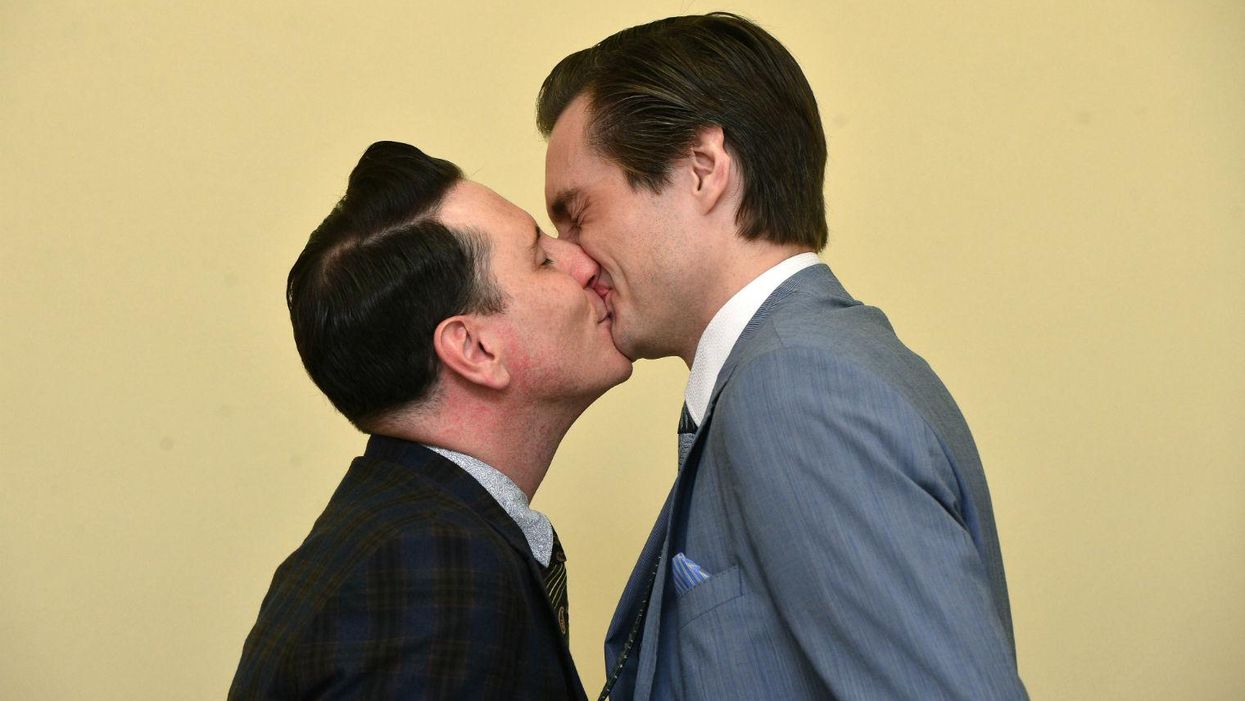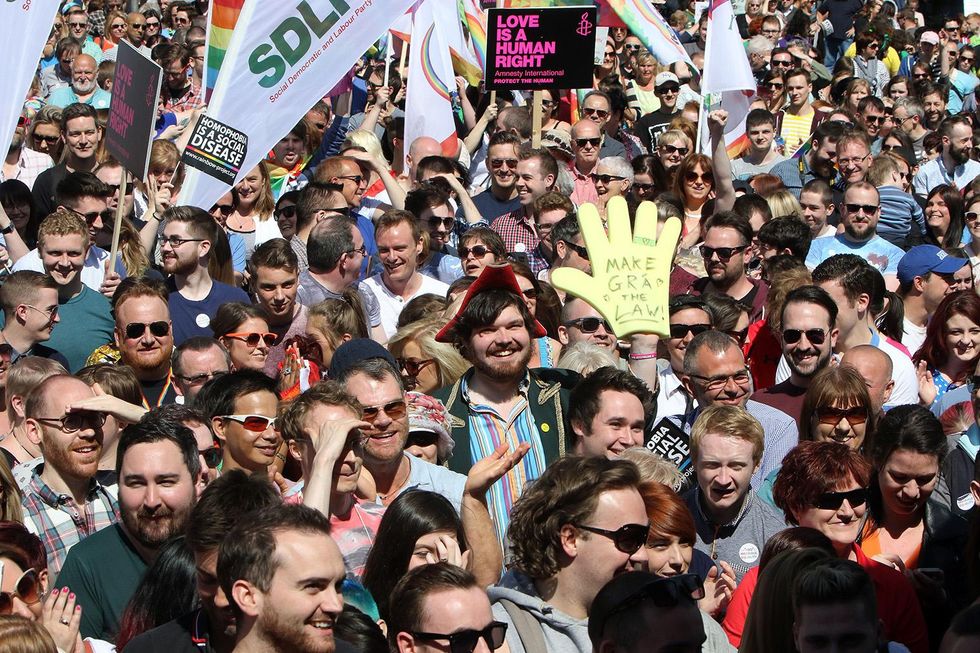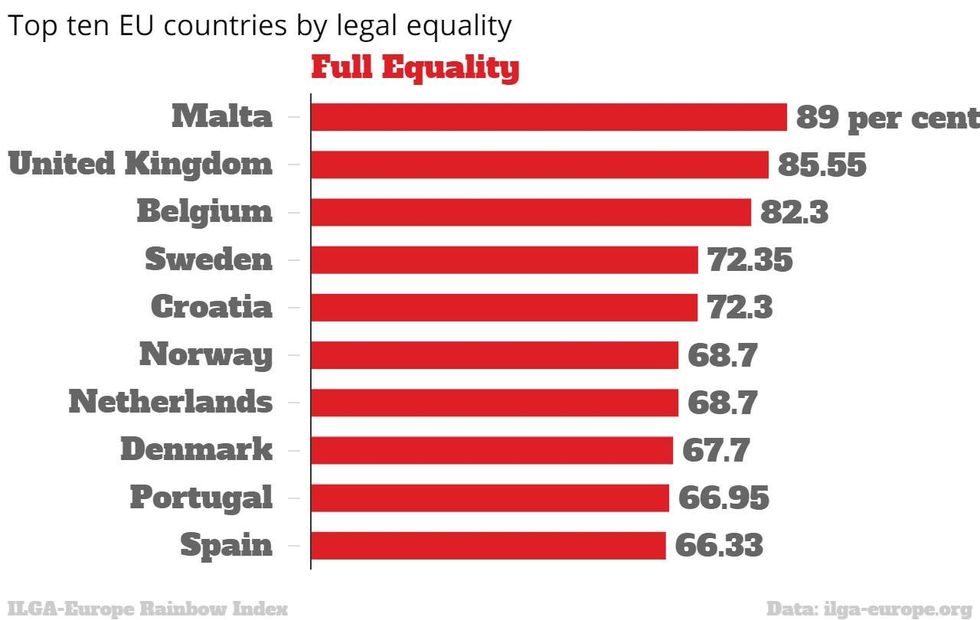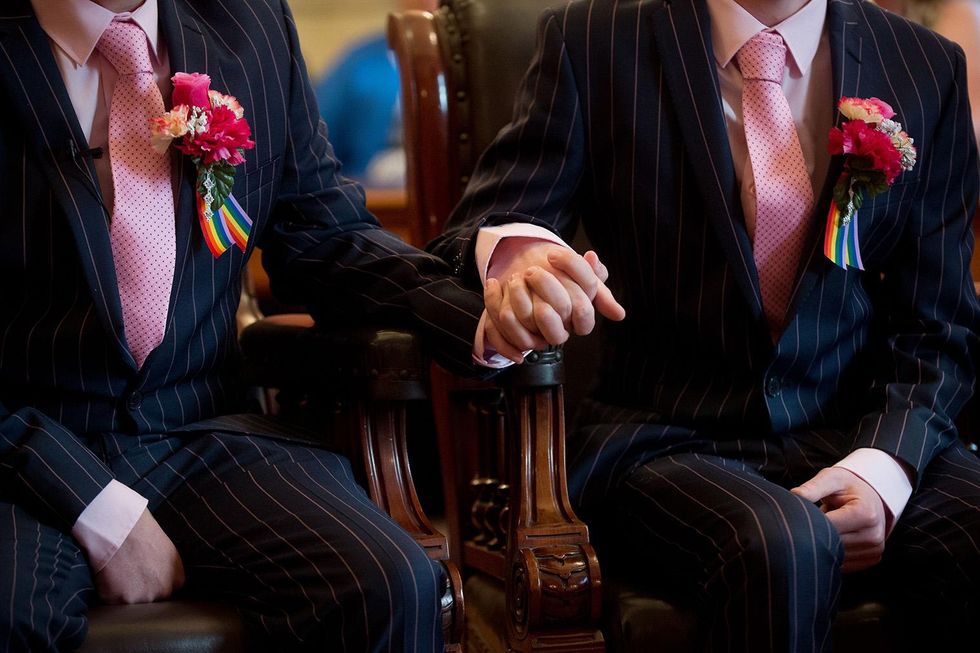News
Louis Dor
Dec 19, 2015

Ten years have passed since the UK’s first civil partnerships took place on 19 December 2005.
Nearly 140,000 people have entered into same-sex civil partnerships over the past decade, and more than 9,000 gay couples have married since they've been allowed to in England, Scotland and Wales from 2014.
The legalisation of gay marriage was seen as a major breakthrough for the gay rights movement, in a line of landmarks including:
1967 - Homosexuality between men was decriminalised in England and Wales for men aged 21 or over in 1967, followed by Scotland in 1980, Northern Ireland in 1982 and the Isle of Man in 1992
1994 - Age of consent for gay men lowered from 21 to 18. It was lowered to 16 in 2001
2000 - Ban on openly gay members of the armed forces lifted
2005 - Civil partnerships come into effect in the UK
2009 - The Criminal Justice and Immigration Act makes ‘incitement to homophobic hatred’ a crime and a new law also gave greater legal recognition to same sex parents
2010 - The Equality Act brought various protections for LGBTQ+ people in one law and also ensure that public services had to demonstrate how their service is accessible to and supportive of LGBT people
2014 - Same-sex marriage laws come into effect in England, Wales and Scotland
So where are we in 2015?
Demonstrators gather at Belfast city hall, Northern Ireland, at a rally for gay marriage rights on 13 June 2015, following the Yes vote in the Republic of Ireland's referendum on gay marriage (Picture: PAUL FAITH/AFP/Getty Images)
In May this year, the UK fell from the top position in the European Region of the International Lesbian, Gay, Bisexual, Trans and Intersex Association (ILGA-Europe)’s rainbow index for EU countries.
The rankings shows the UK was overtaken by Malta in the association’s assessment of progression to legal equality for LGBTQ+ people.
The falling behind was due to issues predominately surrounding gender , including:
- failures to protect gender expression in anti-discrimination laws
- failure to give asylum on the grounds of gender identity
- requiring trans people to seek medical opinions before legal changes in gender
- permitting ‘corrective’ surgery on intersex children
Earlier this year the Republic of Ireland joined Scotland, England and Wales by voting in a landslide referendum to legalise same-sex marriage.
However, same-sex marriage remains not permitted in Northern Ireland.
In November, the Northern Ireland Assembly voted in favour of gay marriage, but the motion still failed to pass after the Democratic Unionist Party (DUP) vetoed any change in the law.
The DUP used a petition of concern to to defeat a vote of 53 to 52 in favour of same-sex marriage, arguing that the law change did not command sufficient cross-community support.
We're not quite there yet...
More:Where in the world gay marriage is legal, and where homosexuality is illegal
More:The countries where gay men are happiest
More:Luxembourg’s prime minister is the first EU leader to tie the knot in same-sex marriage
Top 100
The Conversation (0)
















